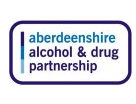Tranquilisers
What are they?
Tranquilisers are man-made prescription-only drugs that have hypnotic, anxiolytic and anti-convulsant effects. They help to relieve anxiety, induce sleep and they have muscle relaxing properties. There are various types of tranquiliser available in tablet form and they come in different strengths. The most commonly prescribed is diazepam.
Short-term effects
The effects depend on the amount consumed. Individual factors such as body weight, gender, the strength of the drug, mood, physical and mental health, how you take it, where you take it and whether or not it is mixed with other drugs also have an impact.
Tranquilisers usually have a quietening effect on the brain; they reduce anxiety, promote sleep, help to relax muscles and can cause short-term memory loss. However some people find they have the opposite effect and can actually increase anxiety and aggression – this is called the paradoxical effect. Because of their potential for addiction, tranquilisers should only be prescribed for 2-4 weeks. They should never be mixed with other depressant drugs such as alcohol or opiates as this carries a serious overdose risk.
It is never advisable to mix alcohol with other drugs as the results can be unpredictable.
Long-term effects
Addiction is the most common long-term effect of tranquiliser use. This happens when tolerance develops and you need to take more of the drug to get the same effect. Many long term users report increased anxiety, disturbed sleep and memory problems. Other reported effects are panic attacks, mood swings and being unable to feel emotions. It is possible to withdraw from tranquilisers but this should always be done under medical supervision due to the potential side effects.
Harm reduction
If you have been using tranquiliser for a prolonged period of time – whether on prescription or not – seek medical supervision before attempting to cease use. Never stop using abruptly.
Avoid mixing tranquilisers with other depressant drugs such as heroin, methadone and alcohol, as this increases your overdose risk.
The law
Tranquilisers are a controlled drug. By law they can only be dispensed by a licensed pharmacist along with a prescription from a doctor. Anyone caught in possession of tranquilisers without a valid prescription faces a maximum 2 year prison sentence and/or unlimited fine. Supplying tranquilisers can lead to a maximum of 14 years imprisonment and/or unlimited fine
Driving while under the influence of drugs is illegal. This can lead to a heavy fine, disqualification from driving and even a prison sentence in some cases.
If you are convicted of a drug-related offence it can stop you travelling to certain countries and affect the types of jobs you can apply for.
If you are using tranquilisers (or any other substances), are worried about someone else’s use or would just like to know more, please contact us for more information.








